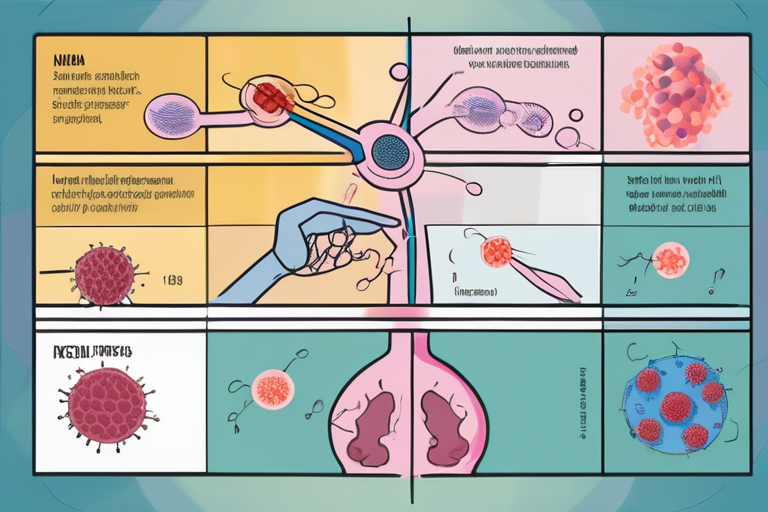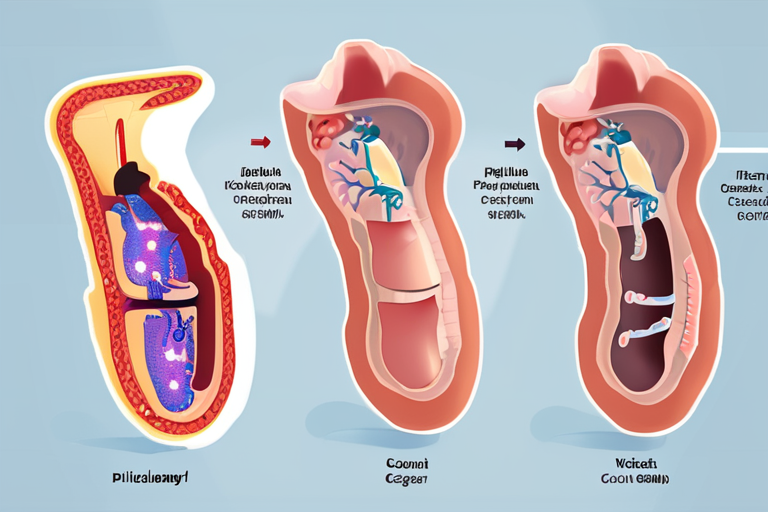Scientists Discover Immune Drug That Could Halt Skin Cancer's Deadly Spread
A groundbreaking clinical study has revealed that an immune-activating cancer drug may significantly reduce the risk of distant metastases in patients with Merkel cell carcinoma, a rare and aggressive type of skin cancer. The findings, published by the ECOG-ACRIN Cancer Research Group (ECOG-ACRIN), mark a major breakthrough in harnessing immunotherapy for rare and aggressive cancers.
According to the study, pembrolizumab, an immune-activating cancer drug, lowered the risk of distant metastases in patients with Merkel cell carcinoma after surgery. Although recurrence rates overall were not significantly changed, the results hint at a meaningful benefit in preventing cancer spread. The nationwide trial, one of the largest of its kind, underscores the promise of immunotherapy for rare and aggressive cancers.
"We are thrilled to see that pembrolizumab has shown potential in reducing the risk of distant metastases in patients with Merkel cell carcinoma," said Dr. Rachel A. Freedman, lead author of the study and a medical oncologist at Dana-Farber Cancer Institute. "This is an important step forward in our understanding of how to treat this aggressive cancer."
Merkel cell carcinoma is a rare but deadly form of skin cancer that affects approximately 2,500 people annually in the United States. The disease has a high rate of recurrence and metastasis, making it a significant public health concern.
The study involved over 150 patients with Merkel cell carcinoma who received pembrolizumab after surgery. Researchers found that those who received the drug had a lower risk of distant metastases compared to those who did not receive the treatment.
"This study highlights the potential of immunotherapy in treating rare and aggressive cancers," said Dr. Freedman. "We are eager to see how these findings can be translated into clinical practice and improve patient outcomes."
The ECOG-ACRIN Cancer Research Group is a nationwide organization that conducts clinical trials to advance cancer research and treatment. The group's mission is to improve the lives of patients with cancer through innovative research and collaboration.
The discovery of pembrolizumab's potential in reducing the risk of distant metastases in Merkel cell carcinoma has significant implications for society. If further studies confirm these findings, it could lead to a new standard of care for patients with this aggressive disease.
"This study is an important step forward in our understanding of how to treat Merkel cell carcinoma," said Dr. Freedman. "We hope that these findings will inspire further research and collaboration to improve patient outcomes."
The study's results were published in the Journal of Clinical Oncology on October 20, 2025. The ECOG-ACRIN Cancer Research Group is currently conducting additional studies to confirm these findings and explore the potential of immunotherapy for other rare and aggressive cancers.
Background:
Merkel cell carcinoma is a rare but aggressive form of skin cancer that affects approximately 2,500 people annually in the United States. The disease has a high rate of recurrence and metastasis, making it a significant public health concern.
Immunotherapy, which harnesses the power of the immune system to fight cancer, has shown promise in treating various types of cancer. Pembrolizumab is an immune-activating cancer drug that has been approved by the FDA for use in several types of cancer, including melanoma and non-small cell lung cancer.
Additional Perspectives:
"This study highlights the potential of immunotherapy in treating rare and aggressive cancers," said Dr. Freedman. "We are eager to see how these findings can be translated into clinical practice and improve patient outcomes."
The discovery of pembrolizumab's potential in reducing the risk of distant metastases in Merkel cell carcinoma has significant implications for society. If further studies confirm these findings, it could lead to a new standard of care for patients with this aggressive disease.
Current Status:
The study's results were published in the Journal of Clinical Oncology on October 20, 2025. The ECOG-ACRIN Cancer Research Group is currently conducting additional studies to confirm these findings and explore the potential of immunotherapy for other rare and aggressive cancers.
Next Developments:
Researchers are eager to see how these findings can be translated into clinical practice and improve patient outcomes. Further studies will be conducted to confirm these results and explore the potential of immunotherapy for other rare and aggressive cancers.
Sources:
ECOG-ACRIN Cancer Research Group
Journal of Clinical Oncology
Dana-Farber Cancer Institute
*Reporting by Sciencedaily.*



 Hoppi
Hoppi

 Hoppi
Hoppi

 Hoppi
Hoppi

 Hoppi
Hoppi

 Hoppi
Hoppi

 Hoppi
Hoppi











